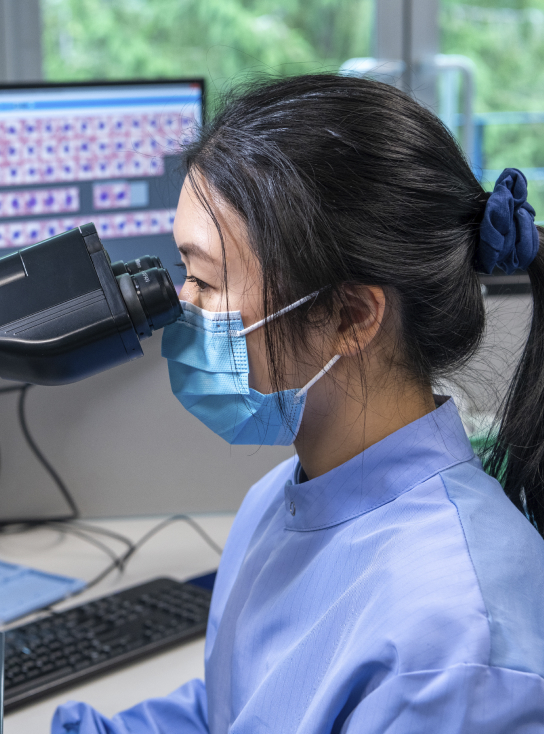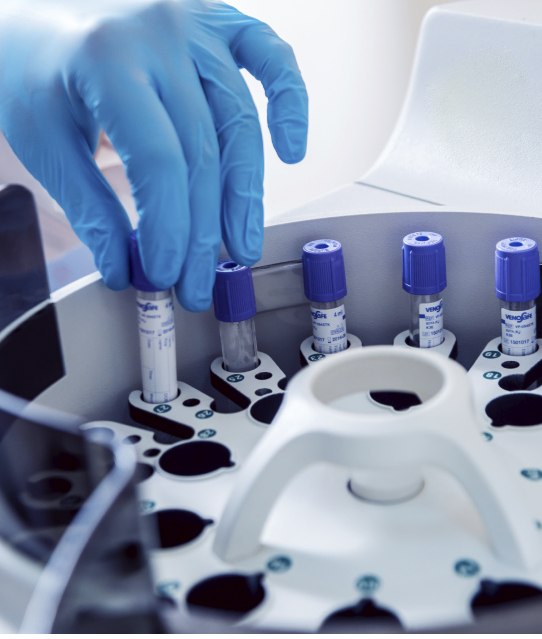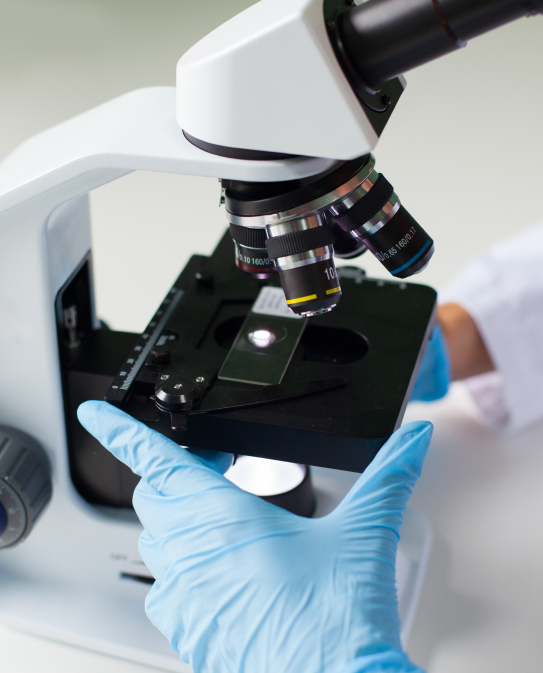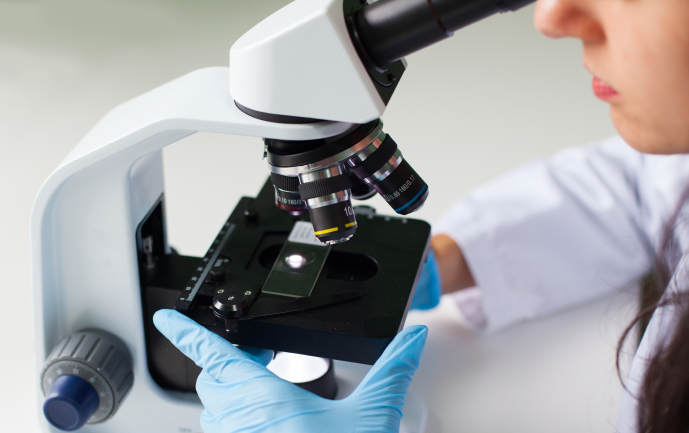Building and Sustaining Innovative Partnerships
Our team’s talent for collaboration extends seamlessly to our external partners, where we have forged a range of exciting partnerships in the areas of education, technology, talent development, and risk assessment.


Partnering with Anderson College to Develop Healthcare Talent
Medical Laboratory Technologists (MLTs) — the people who perform diagnostic tests and report the results — play a crucial role not just at LifeLabs but in Canada’s health care system. MLTs are in high demand, and LifeLabs is doing its part to help build a talent pipeline that brings people into these highly skilled roles.
In 2022, LifeLabs launched a two-year MLT hybrid training program in partnership with Anderson College, a long-established career college with several locations in Ontario and B.C. As part of the program, second-year students work alongside licensed, experienced MLTs at LifeLabs sites. This provides them with practical experience to supplement their classroom instruction and laboratory training at Anderson College. LifeLabs has also committed to providing job opportunities to graduates of the program. The first group of students will graduate in 2024.
“Our partnership with Anderson College will help deliver a new generation of MLTs, supporting the testing needs of communities across Canada,” says Jennifer Cudlipp, Chief Operating Officer.
The new partnership builds on LifeLabs’ history of supporting diagnostic-related educational programs by providing practicum placements to students.
Launching a New Partnership with Natera to Improve Cancer Treatment
Patients previously diagnosed with cancer can now access a highly sensitive, personalized test to check for residual disease and assess the risk of a recurrence.
The test, developed by Natera, Inc., detects circulating tumour DNA and can identify a relapse up to two years earlier than other methods currently available. The test also examines customer DNA for risk factors to help predict the likelihood of cancer recurrence.
The cutting-edge test, SignateraTM, will help oncologists and surgeons to make precise clinical decisions regarding cancer treatment — treatments that align with their patient’s specific profile. The test is non-invasive and allows individuals to be monitored without repeated biopsies or imaging.
The clinical utility of SignateraTM across cancer types has been validated by multiple studies. “Clinical trials show that SignateraTM provides a precise and informative measurement of residual disease,” says Dr. Catherine Ross, VP of Medical and Quality Affairs. “We’re incredibly pleased to be able to offer this valuable, innovative tool to improve cancer care in Canada.”




Partnering with University of Toronto and McMaster to Train Clinical Chemists
In Ontario, chemists with a doctorate degree in their field can specialize in clinical (medical laboratory) chemistry by going through a post-doctoral fellowship program at either the University of Toronto or McMaster University.
Several times in the past decade, students in this post-doctoral fellowship program have been offered a two-week training rotation at LifeLabs. This rotation was singled out for praise by the Canadian Accreditation Committee (CAC) when they reviewed the fellowship program in 2022. Based on the CAC’s report and the positive feedback received from students, LifeLabs’ training rotation has now been included as a standard, annual event on the fellowship program schedule. The rotation exposes clinical chemistry fellows to the unique challenges and techniques of community lab testing to complement their experience in hospital laboratories. Working with LifeLabs clinical chemists and laboratory scientists, the fellows learn about high-volume automated testing, specimen collection in an outpatient setting, and the complex logistics involved in transporting specimens from Patient Services Centres to labs.
Partnering with Western University to Prepare for Climate Change
Changes driven by global warming are already evident, and these impacts will become more pressing in the coming years.
LifeLabs is proactively planning to ensure we will be able to adapt quickly in the face of new challenges — such as keeping laboratories cool in a warming climate — and positive changes, such as the trend toward electric vehicles.
To help us prepare for all possibilities, LifeLabs partnered with Western University to conduct a Climate Change Risk Assessment. A group of supervised students from the university completed the study and identified 24 potential risks to our operations. The risks were categorized according to likelihood and level of impact to help identify the most urgent priority areas. The Climate Change Risk Assessment is a valuable framework that will guide us as we systematically prepare for and adapt to the impacts of climate change.




 BACK TO HOME
BACK TO HOME